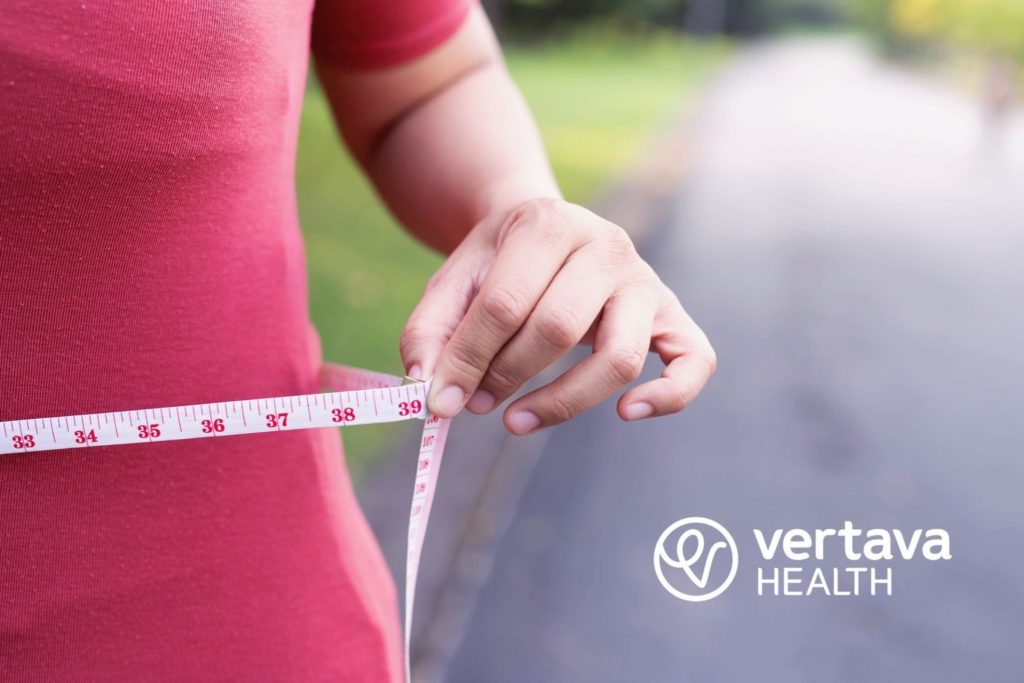With countless diet pills and an expansive selection of fitness services and products out there, it is no surprise that almost half of adults are trying to lose weight.1 In a lot of cases, dropping a few pounds can help people lead healthier lives, but shedding this weight can be a challenge. If you just got sober and are leaving residential addiction treatment, you may notice that the scale is going up. In fact, weight gain in sobriety is quite common.
Sobriety & Weight Gain
Gaining weight after drug use stops is a frequent occurrence for many people in early recovery. Once they make it through drug detox and start to adjust to life in recovery, they may notice that they start to gain weight in recovery. Weight gain in addiction recovery can be a result of several factors including:
- Increased appetite without increasing energy levels
- Sugar cravings resulting in a fatty diet
- Replacing substance use with eating
- Stress eating
In some cases, people who have been abusing drugs or alcohol for a long time may even be underweight or malnourished and weight gain in early recovery may be beneficial for them.
Sobriety & Weight Loss Tips in Recovery to Help You Get Healthy
Regardless of the reason, coping with weight gain in sobriety can be stressful. It is natural to want to lose weight as soon as possible, but it is more important to make sure you deal with weight gain in recovery from addiction in a healthy manner, especially when eating disorders and addiction often go hand in hand. As providers of behavioral health services, we are sharing some tips on how to manage your weight as well as how to lose weight in addiction recovery, so you can lead a healthier life.
Mind What You Eat
Drug use can lead to sparse eating and drastic weight loss. When the use stops, you are likely to develop more regular eating habits and consequently, consume more calories. Dealing with weight gain in recovery is largely about watching what you eat. Avoid sugary or fatty food that are high in wasteful calories. You can also keep a food diary so you know exactly what you are eating and how often.
Exercise
One of the most common pieces of advice on how to lose weight in early recovery is to exercise, but be careful. If you were struggling with substance use for many years, your body needs time to heal. Start slowly and focus on consistency rather than intensity to start. While this approach may not result in rapid weight loss in recovery, it will help you build a healthier lifestyle and manage your weight in recovery in the long run.
Watch Your Nutrition
Along with avoiding junk food, you also watch to make sure your body is getting the proper vitamins and minerals. While still using, you may have been depriving your body of these necessary nutrients. Now that you are sober and clean, you need a diet that helps you replenish and heal your body. Good nutrition can also help you build up your exercise routine faster. A dietitian can help you determine your body’s specific needs.
Examine Why You Eat
Another helpful piece of weight loss advice for recovery is to determine your motivation for eating. Are you eating because you are hungry? Stressed? Feeling triggered? Craving sugar? If you start to examine the reasons behind your snacking, you can better understand why you are eating and avoid unnecessary eating that can lead to weight gain in recovery.
Change Your Lifestyle
Just like in addiction recovery, the goal is a lifestyle change, not a one-time effort. Going on a crash diet or an exercise binge may help with rapid weight loss in early recovery, but you will likely not be able to maintain these practices and gain the weight back. One study even found that anywhere from 33 to 66% of people on diets end up gaining more weight than they lost four or five years later.2 If you really want to learn how to lose weight in addiction recovery that stays off, you need to focus on making changes that are manageable and gradually increasing your efforts. It can be tempting to want to throw in the towel when the scale isn’t showing the results you are looking for, but be patient. Learning how to manage weight gain after addiction recovery can help you lead a healthier and happier life in the long run. If you are still struggling with substance use, get help. At Vertava Health, we offer comprehensive treatment plans that teach patients healthy habits and how to change their lives for the better permanently. Contact us today to learn more.


